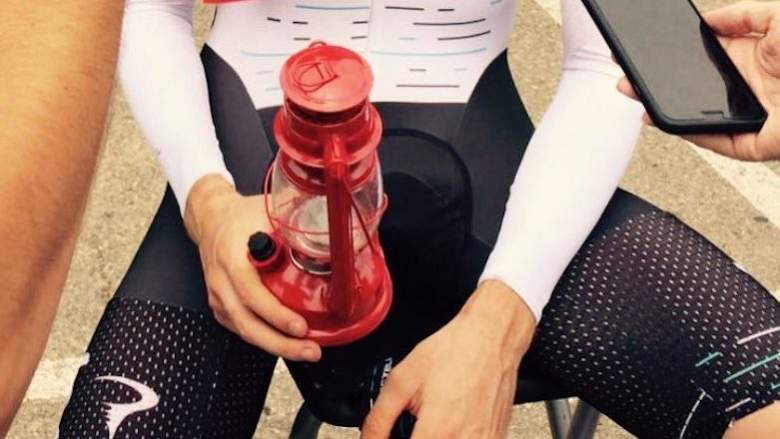
It seems to be clear at this point who will win the Tour de France. After a masterful showing during a weather-shortened Stage 19, Colombian cyclist Egan Bernal surged into a 45-second lead entering the final mountain stage.
Next in line is France’s Julian Alaphilippe, but even the Frenchman knows who the superior climber is, which is very relevant over the ensuing 59km.
Interestingly enough, the race for last place has provided some last-minute intrigue. Entering Saturday at Albertville, Sebastian Langeveld of the Netherlands led Yoann Offredo of France by just three seconds (who is a full four hours, 13 minutes and 53 seconds behind Bernal).
The loser between the two, or whoever falls behind them, will “win” the Lanterne Rouge. According to Jen See of Bicycling, the honor is a red lantern that would’ve hung from the caboose of a train.
In a world before computer images and satellite navigation systems, the train’s conductor would watch for the red lantern to ensure that all the cars in the train remained connected. No red light meant no train. In a poetic turn typical of cycling, the Tour de France has borrowed the term to designate the final rider in the general classification.
There is no prize money for the lanterne rouge, but the riders fiercely contest it all the same.
You have to physically cross the finish line to be eligible for the recognition. This still means that the Lanterne Rouge recipient typically does better than a fifth to a quarter of the starting competition.
Cyclist describes how fans find such appeal in how does the worst, as the award almost humanizes a superhuman effort.
Perhaps fans throughout the Tour’s history have cheered him on because they feel for the underdog, or because they feel that, in the peloton of stick-thin superhumans, riding across whole mountain ranges and countries at unfeasible speeds, he is the most like them, the most human.
The Lanterne Rouge title is sometimes laughed off as a booby prize, a wooden spoon for the heroic loser. More damningly, it is sometimes seen as perverse, as a celebration of failure. But all those fans down the years can’t be completely wrong.
This spirit is the subject of a book by Max Leonard titled “Lanterne Rouge: The Last Man in the Tour de France.” The description on Amazon tells the stories of “the breakaway leader who stopped for a bottle of wine and then took a wrong turn; the doper whose drug cocktail accidentally slowed him down and the rider who was recognized as the most combative despite finishing at the back.”
Lawson Craddock of the United States took home the Lanterne last year. He earned a lot of attention for his GoFundMe, which raised more than $192,000 for Alkek Velodrome, a training facility in his hometown of Houston that suffered damage from Hurricane Harvey.
According to USA Today, he pledged $100 for every stage that he completed along with the outside donations.
Nice guys do finish last, it seems.
Comments
Lanterne Rouge: What’s the Last-Place Award at the Tour de France?